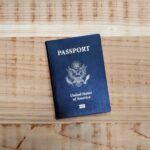
Welcome to FindBiometrics’ digest of identity industry news. Here’s what you need to know about the world of digital identity and biometrics today:
Russian Lawmakers Move to Protect Right to Biometric Privacy
Russia’s State Duma, the lower house of its Federal Assembly, has approved legislation that would prohibit the coerced collection of biometrics. Russians who want to be exempt from the collection of biometric data can submit a written notice to administrative centers in the country. The law’s passage comes after the head of the Russian Orthodox Church, Patriarch Kirill, urged the State Duma to respect the “fundamental and unconditional right of the citizens to refuse biometric identification, with absolute guarantees of non-discrimination” earlier this month.
Moscow Metro’s Naked Payments System to Expand
The Moscow Metro will extend its biometric fare payment service with the addition of 330 more turnstiles to its network in January, bringing the total to 900. The smart turnstiles allow registered commuters to pay their fare via facial recognition. Meanwhile, facial recognition systems operating through surveillance cameras in the Metro have been used by government authorities to arrest dissidents.
Mombasa County to Collect Workers’ Biometrics
The Governor of Mombasa has revealed plans to register the biometrics of all of the Kenyan county’s government workers, citing the need to eliminate ghost workers that are drawing salaries using fictitious identities. The registration process will begin this week, and entail the collection of fingerprints and face photos. In announcing the plan, Governor Abdulswamad Nassir suggested that potentially linking biometrics to payrolls is, for now, a ‘secondary’ consideration, with the immediate priority being to verify the identities of all workers.
Technical Issues With Biometric Verification Worsen Hunger in Indian Villages
Technical issues are preventing individuals in multiple Indian villages from accessing their subsidized food and other benefits, according to a report from DownToEarth. The country’s Public Distribution System shops now using biometrics to verify customers via India’s biometric national ID program, Aadhaar; but some biometric scans fail to verify legitimate subsidy claimants, and backup verification processes appear to be unreliable as well.
Apple Shunts to iPhone SE 4 to 2024
Due to weaker than expected sales of the latest crop of mid-range iPhones, Apple will likely delay the launch of the more budget-friendly iPhone SE 4 until 2024, according to renowned analyst Ming-Chi Kuo. The next iPhone SE is expected to be the first in this particular lineup to ditch the fingerprint-scanning Touch ID authentication system in favor of the Face ID system found in all of the rest of Apple’s recent iPhones, but the new, full-screen design will entail higher production costs.
Accops Launches Face Scanning and Environment Monitoring Software
India-based Accops has partnered with the country’s Centre for Development of Advanced Computing (C-DAC) on software enabling facial recognition and environment monitoring through a PC, laptop, or tablet. The Accops BioAuth solution is aimed at government agencies and other organizations, offering a means of remote authentication that can also prevent “shoulder surfing”; and the company noted that it could be used by education institutions for remote proctoring, as well.
Knitwear Brand Embraces Sheep Recognition Technology
A London-based knitwear company is applying facial recognition to the sheep that supply its wool in an innovative transparency effort. Sheep Inc. has been working to build its brand as a clothing company that is uniquely open and transparent about its supply chain and sustainability practices, and has now launched an online platform designed to let customers livestream its sheep straight from the farm and to track individual sheep using biometric software. “With this, you can see who would have contributed to the wool in your sweater, and for us this is super important,” explained co-founder Edzard van der Wyck.
Japan’s PM Asks Apple Boss for Digital ID Integration
Japan’s Prime Minister has personally asked Apple CEO Tim Cook to integrate the country’s My Number digital ID into the iPhone. The request comes amid government plans to replace physical health insurance cards with My Number in 2024, which would enable healthcare providers to verify the identities of patients using facial recognition. Prime Minister Fumio Kishida brought up the matter during an in-person meeting with Cook, who replied that Apple would get to work on the integration.
Google’s Mobile ID Goes Into Beta Testing in Maryland
Google is now beta testing its digital ID in Maryland. Interested users can register by uploading photos of the front and back of their driver’s license or state ID, and submitting a selfie video. It isn’t clear if facial recognition is used to match the images; in its support page, Google explains that, “A photo from this video will be submitted to your ID issuer for verification.” As is the case with Apple’s mobile driver’s license, Google’s will be accepted by the TSA as official ID at certain airports.
Enterprise-focused Identity Summit Now Available On-Demand
FindBiometrics’ recent Virtual Identity Summit on enterprise biometrics is now available on demand. Video recordings of each of the day’s sessions can be accessed through this page.
–
December 21, 2022 – by Alex Perala
Want to get the identity news digest early? Become a member and get the digest sent straight to your inbox, before it’s published on FindBiometrics:








Follow Us